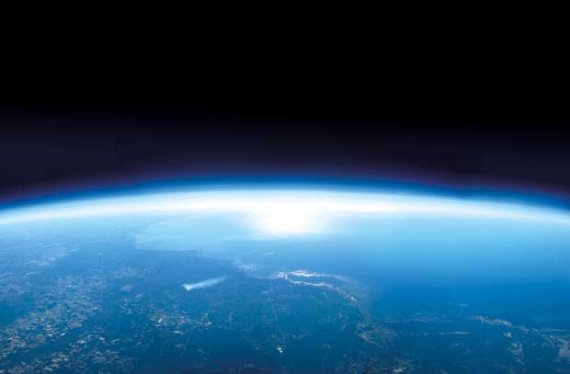Nobody knows what will happen on that day, but one thing is certain: humanity as we know it will cease to exist. Will the universe form a black hole into which the earth disappears, will the world explode like a glass globe smashed to smithereens, will a natural disaster of unprecedented proportions send us from here to eternity? What destiny awaits us when the seventh trumpet sounds and we go to meet our doom? The earth is much older than the human race, and yet we are part of the earth and it is part of us. Little inclined to modesty, we have tampered with the earth and changed its face. We have tilled the soil and grown our own food. We have tamed wild animals and trained them to work for us; we drink their milk and eat their flesh. We have felled our tropical rainforests, caused sea levels to rise by interfering with the climate; we have drained lakes and tried to redirect rivers. So are we all going to go under together now? With our own hands we built the Coliseum, the Great Wall of China, and the skyscrapers of New York. Human beings produced the Mona Lisa, the Night Watchman, the Lamb of God and other beautiful paintings; human beings wrote the most beautiful books and poems, and composed exquisite music that moves us every time we hear it. But the same human race also created the atom bomb and Auschwitz death camp. We erected the Iron Curtain and we broke it down again. Time again, there seem to be two sides to the coin of human nature. White and black, day and night, life and death. Who decides which comes out on top? And now we just have seven days left. That is all. Time is unfathomable. If we walk along a river to find where it starts, we eventually get to its source, but if we go back in time… where does it start? What was there before it started, and by the same token, what will there be after it ends? We cannot get to grips with time. As soon as we are born, our death is certain and it is a fact that the sun will die out, but these are certainties that we don’t know what to do with. No one can say that the end comes as a surprise, but now that we know we just have seven days to go – a little more than 10,000 minutes – our hearts are in our mouths. It is time to say goodbye, then. But that is easier said than done. How do you do it? Nobody has ever taught us how to say goodbye to everything for ever. I imagine standing for one last time on top of Errisbeg in Ireland, looking out over the plains of Connemara with its countless lakes and ponds and rugged coast. I look my last over the Boschplaat nature reserve from the Stuifdijk on the Dutch island of Terschelling. I climb the Teide on Tenerife and look down into the crater, as always above the clouds. For the last time I kneel on a chalky slope in the Geren valley in South Limburg and am astonished by its wealth of flora; this year there were more primulas than there have been for years. In seven days’ time we’ll be gone. What is the most significant loss? The beautiful buildings we have made, our art? No, it is something else. It is the love that the world will miss most. Yes, we have loved. I close my eyes and think of the people I love. Like time, love knows no boundaries, no beginning and no end. That is my great consolation. To go around the earth seven times, if necessary on hands and knees, seven times to greet the one … So wrote the poet Ida Gerhardt. And yes, perhaps the dead will rise up and we shall all be reunited. Who is to say?
Eulogy for the human race
In seven days' time, on 21 December, the last day dawns of the last b'ak'tun of the Mayan long count calendar.

